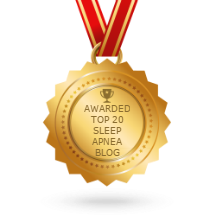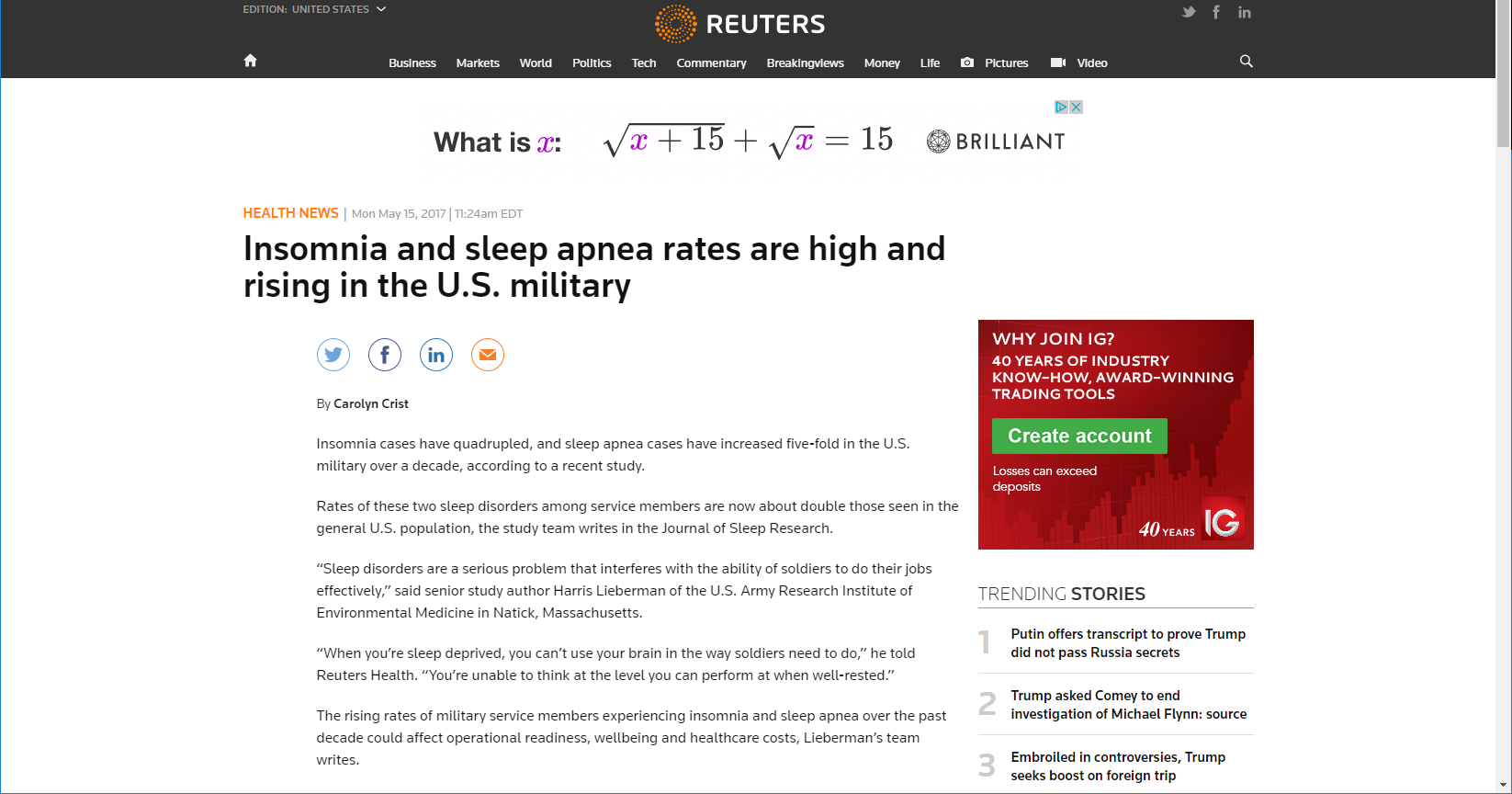
Sleep Apnea, Insomnia Rates Rising In U.S. Military
Insomnia cases have quadrupled, and sleep apnea cases have increased five-fold in the U.S. military over a decade, according to a recent study.
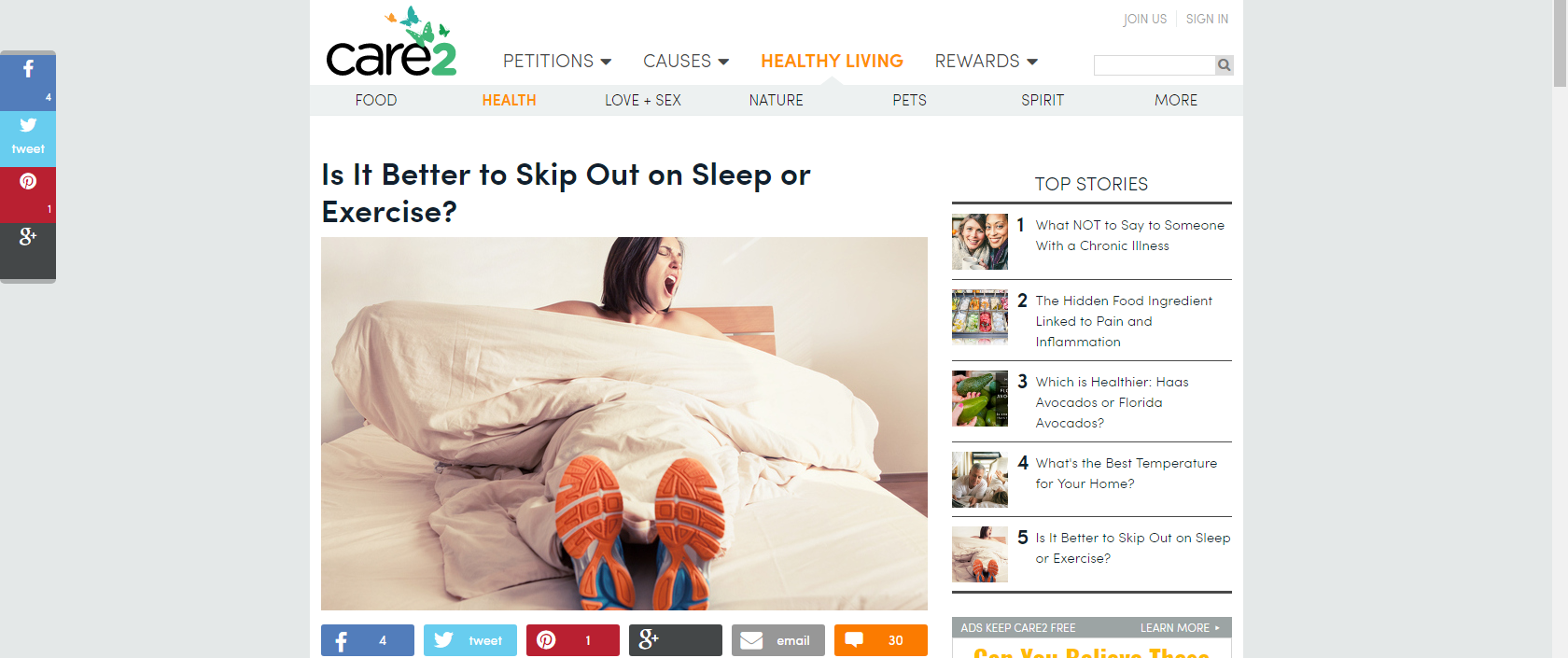
Should You Skip On Your Sleep And Exercise Instead?
Sometimes you just can’t do both. Should you sleep in for an extra hour (or go to bed earlier) to try to catch up on lost shut-eye? Or should you wake up and fit in a much needed workout?
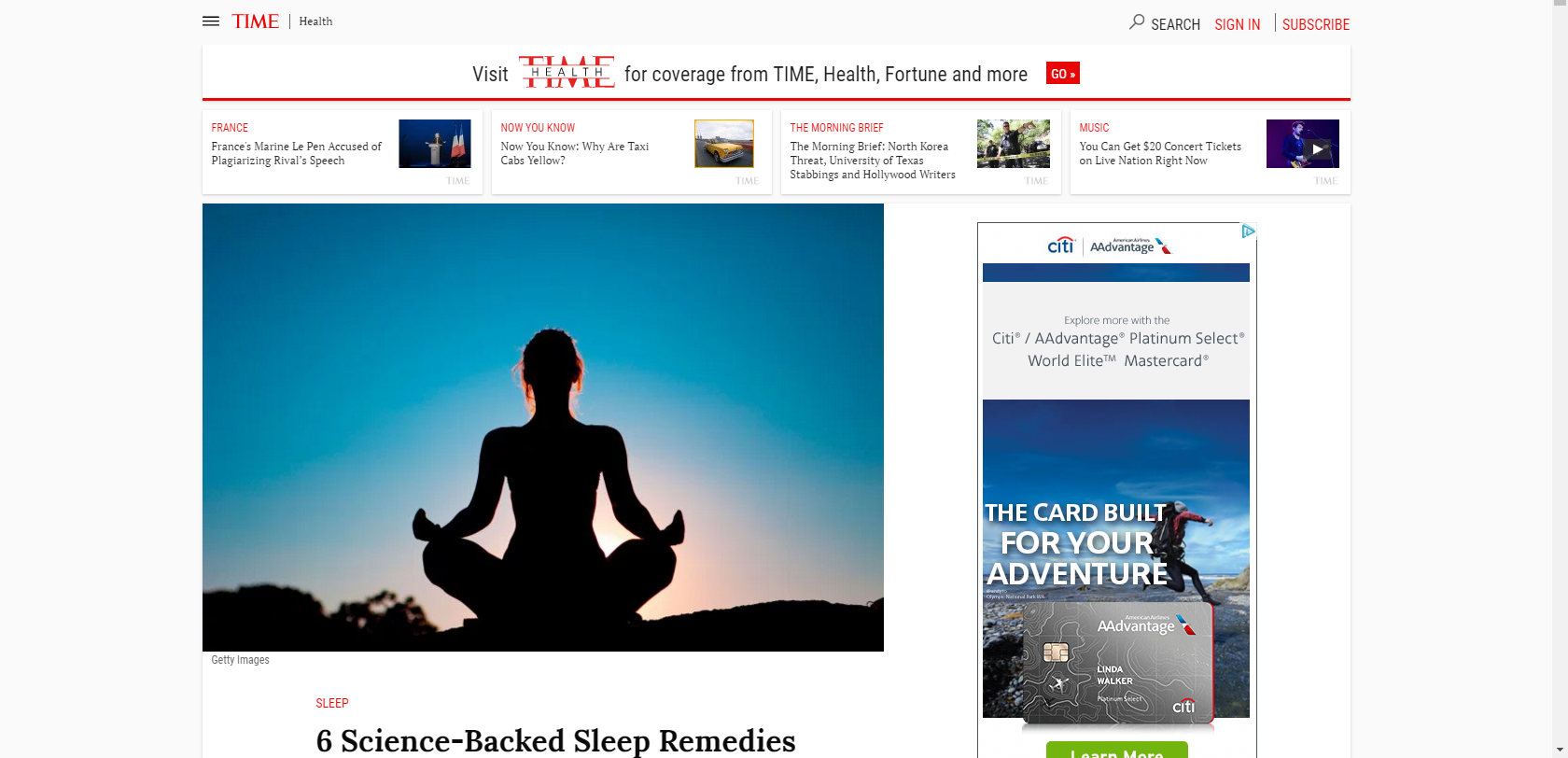
These Sleep Remedies Are Science Backed; Will They Work For You?
Sleeping pills are big business: About 1 in 25 adults has taken a prescription sleep medicine in the last month, according to data from the Centers for Disease Control. And according to Consumer Reports, Americans spent $41 billion on sleep aids and remedies in 2015—a number that’s expected to reach $52 billion by 2020.
But plenty of people are looking for natural solutions, too. Use of melatonin supplements, for instance, more than doubled in the United States from 2007 to 2012. And while scientific evidence for many herbal and alternative insomnia treatments is thin at best, there are some drug-free remedies that have been well studied by scientists.
If getting to sleep or staying asleep is an ongoing problem, it’s important to figure out and address the underlying cause, says Dr. Daniel Barone, neurologist at New York-Presbyterian and Weill-Cornell Medicine. In the meantime, these alternative remedies may help you get back to sleep sooner.
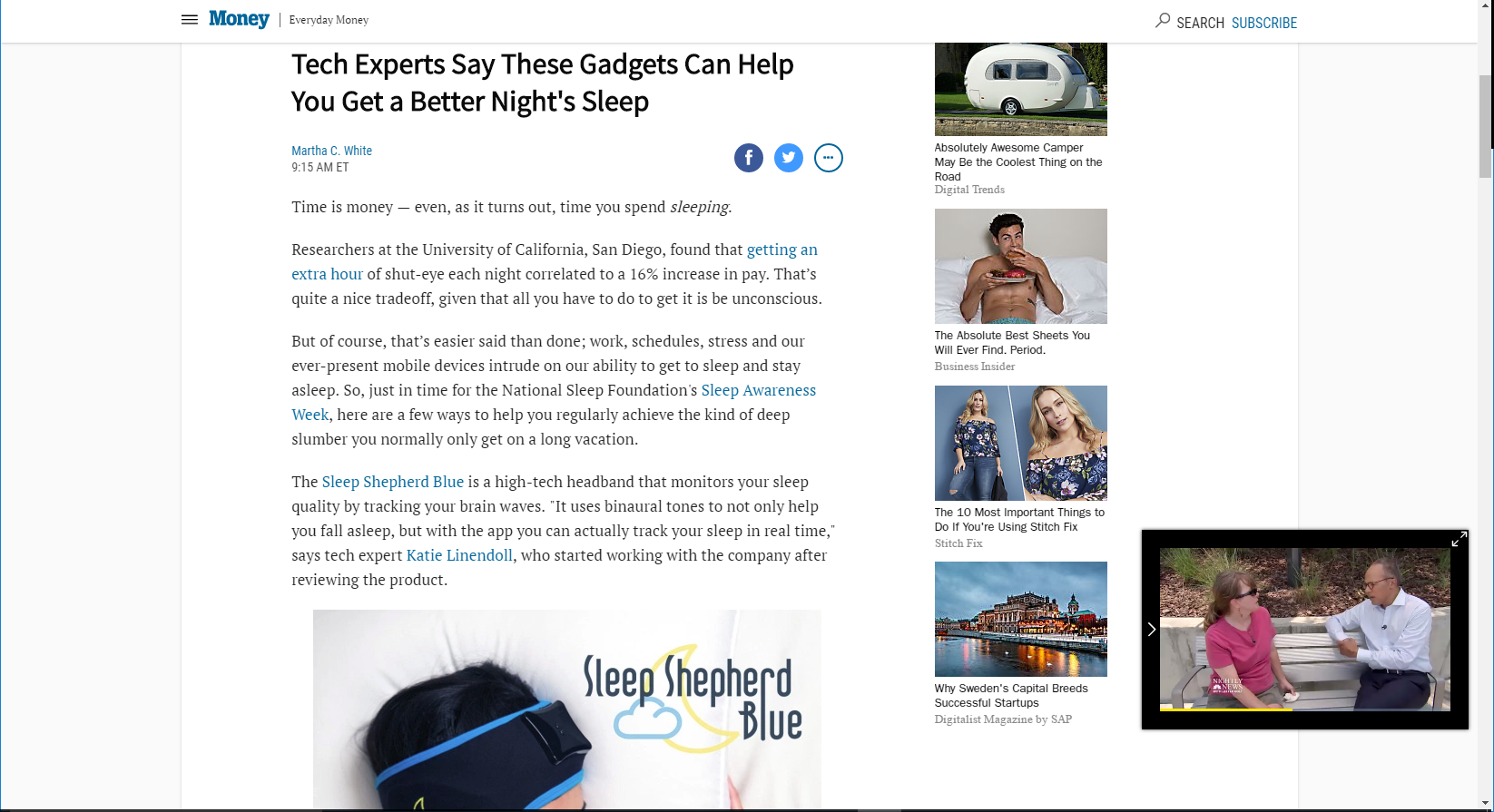
Sleeping Issues Might Improve If You Use These Gadgets
Time is money — even, as it turns out, time you spend sleeping.
Researchers at the University of California, San Diego, found that getting an extra hour of shut-eye each night correlated to a 16% increase in pay. That’s quite a nice tradeoff, given that all you have to do to get it is be unconscious.
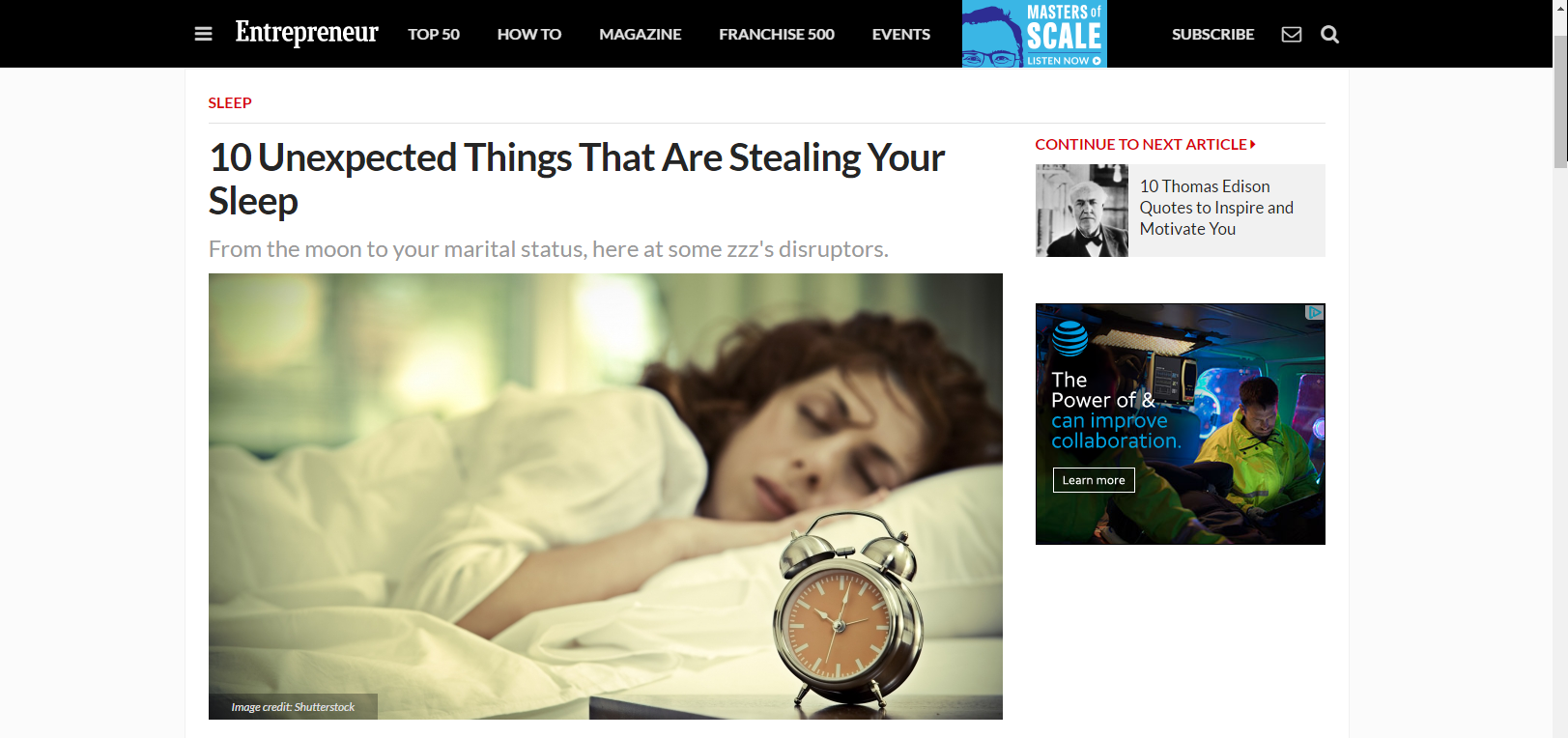
Trouble With Sleep? These 10 Things Could Be The Reason
Without sleep, your health — both mental and physical — as well as your ability to focus seriously suffers. And let’s be honest, without an adequate amount of rest, none of us are fun to be around.
There are a few tried and true ways to get a better night’s sleep, such as not consuming caffeine after a certain hour or keeping your devices out of your bedroom. But there are also factors that you wouldn’t expect to be sapping valuable hours of shut eye. Read on for some of the most stealthy sleep saboteurs.
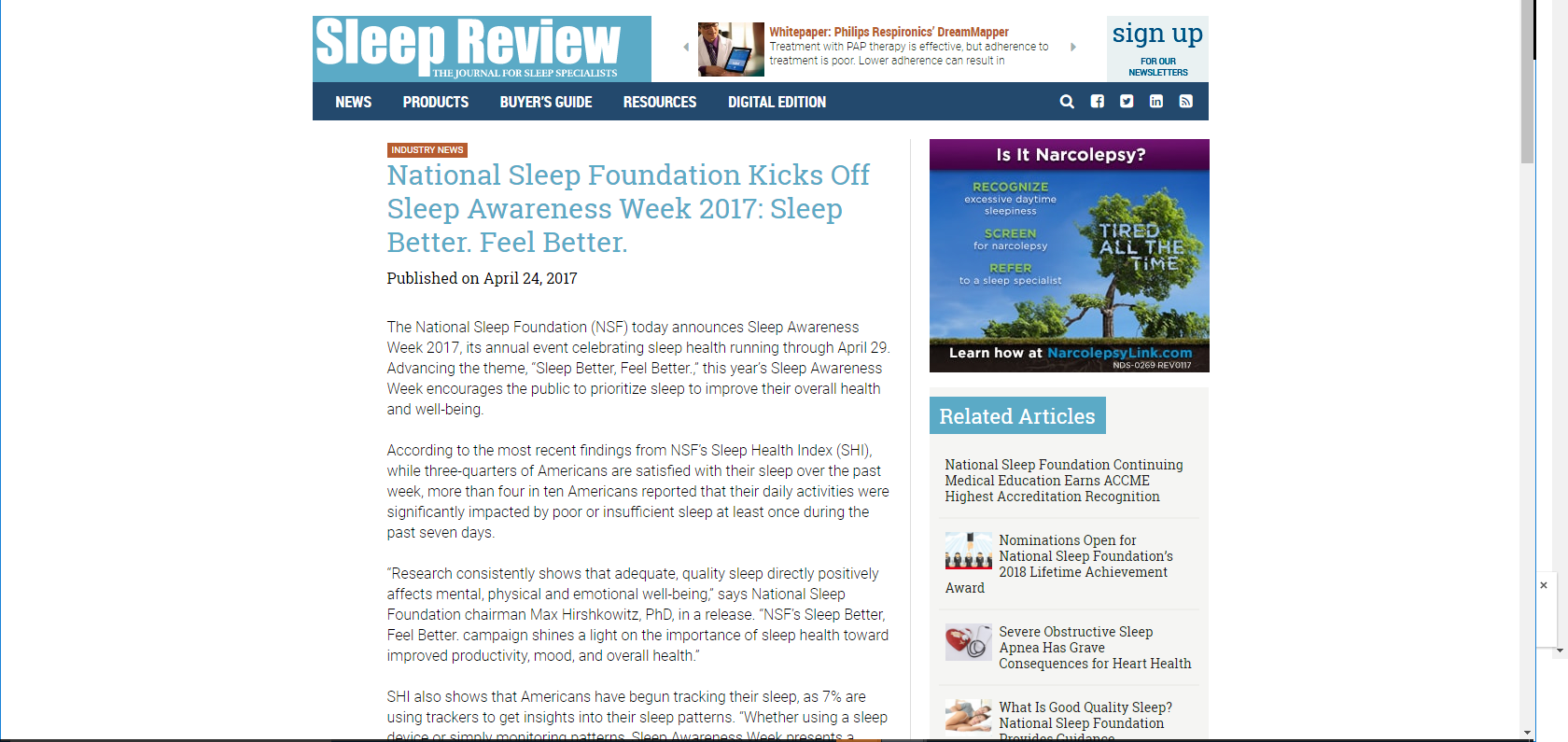
Sleep Awareness Week 2017: Sleep Better, Feel Better
The National Sleep Foundation (NSF) today announces Sleep Awareness Week 2017, its annual event celebrating sleep health running through April 29. Advancing the theme, “Sleep Better, Feel Better.,” this year’s Sleep Awareness Week encourages the public to prioritize sleep to improve their overall health and well-being.
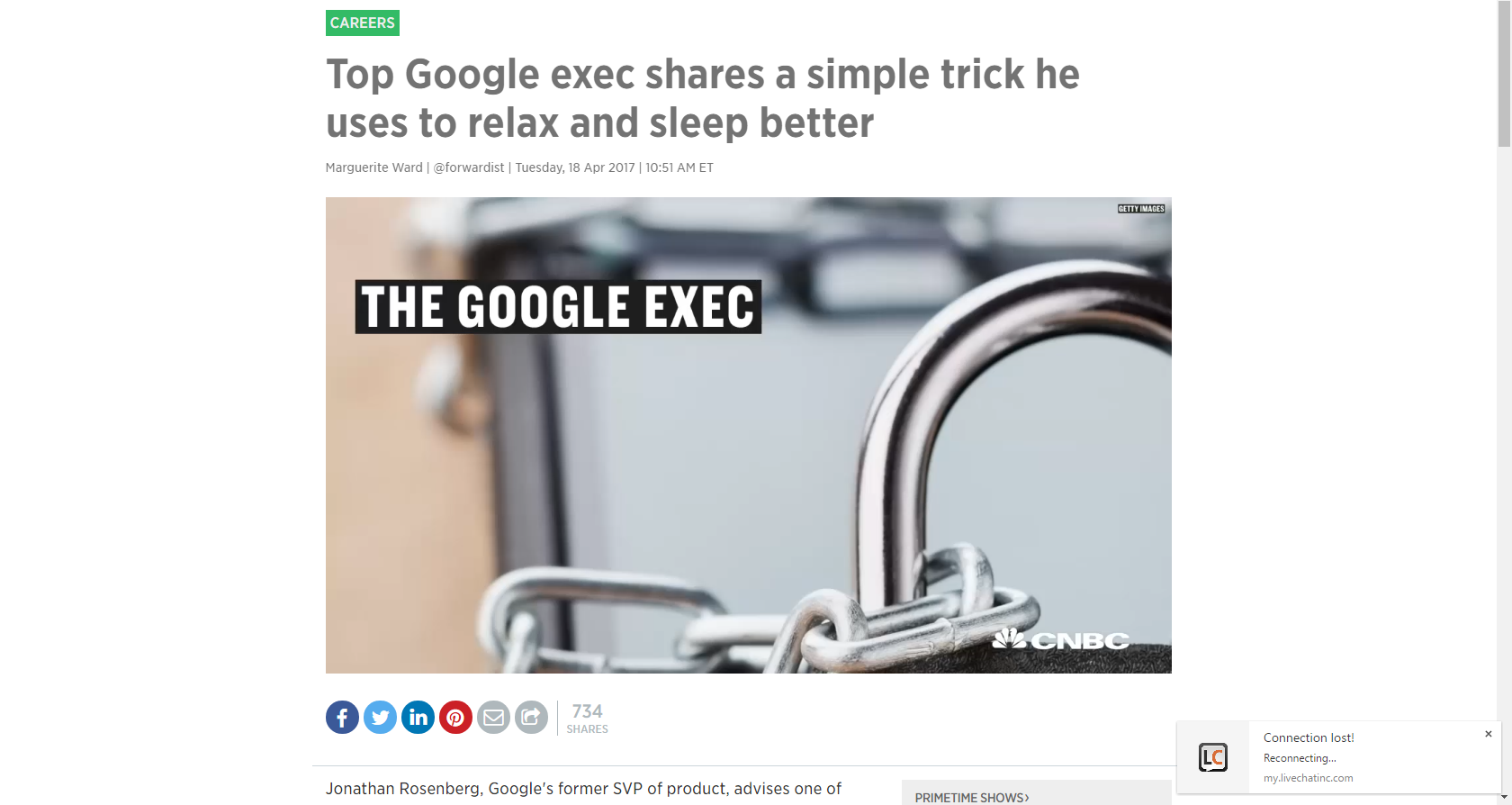
Google Exec Shares Secret That Helps Him Sleep Better
Jonathan Rosenberg, Google’s former SVP of product, advises one of the most important tech CEOs on the planet, Larry Page of Alphabet, Google’s parent company.
He’s also co-author, with executive chairman Eric Schmidt, of business tome “How Google Works.”
It’s no surprise that someone with Rosenberg’s schedule admits to having an “addiction” to his smartphone, something every professional can relate to. But even this busy exec makes a point of putting his phone away while at dinner and before bed. He says the simple habit helps him relax after a busy day and fall asleep.
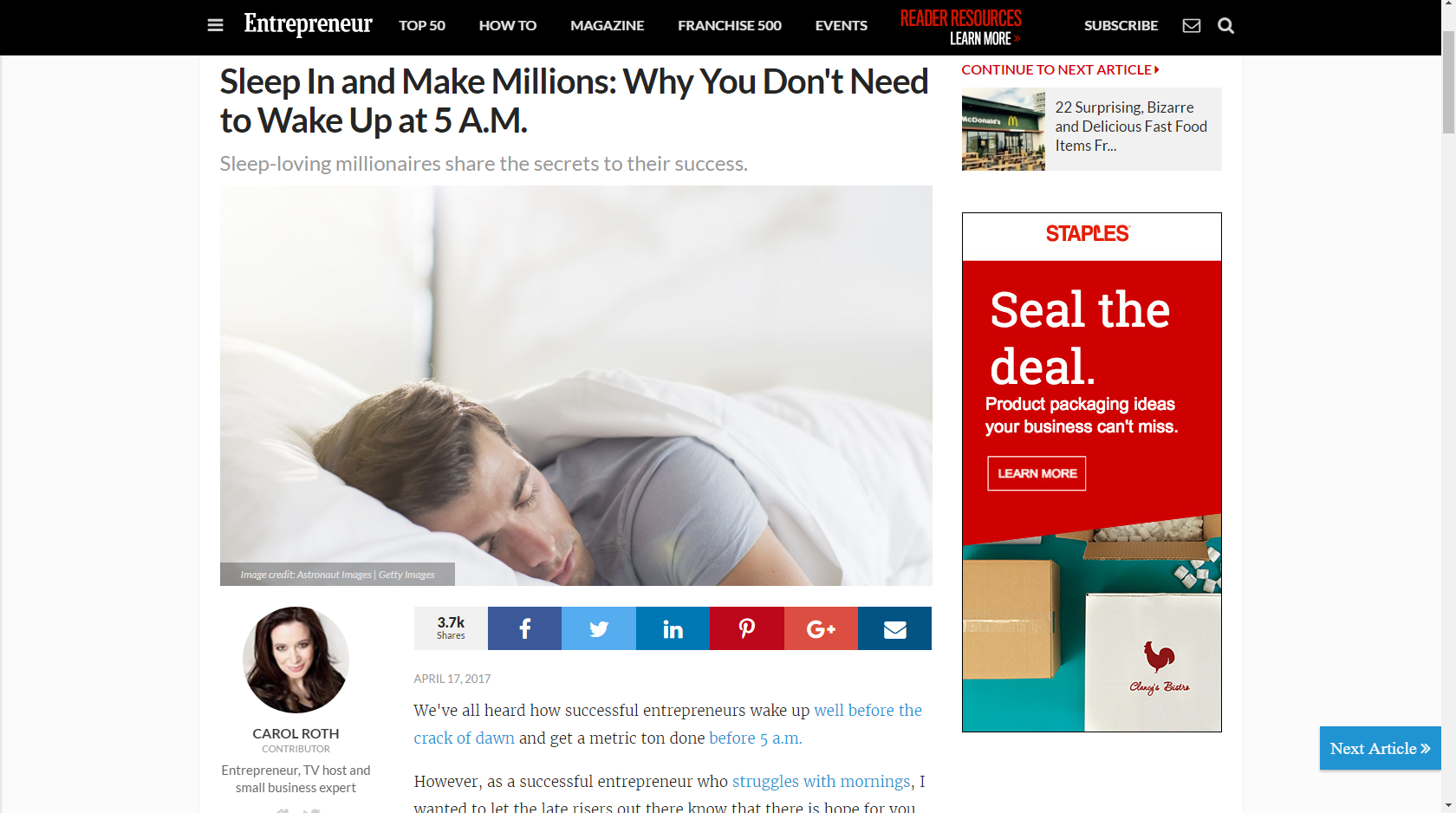
Entrepreneurs, you can still sleep late and make millions!
By Carol Roth
Sleep Late? No Problem!
We’ve all heard how successful entrepreneurs wake up well before the crack of dawn and get a metric ton done before 5 a.m.
However, as a successful entrepreneur who struggles with mornings, I wanted to let the late risers out there know that there is hope for you, too. So, I spoke with a variety of millionaires who wouldn’t even think of waking up at 5 or 6 . . . or even 7 a.m.
Here’s our best advice to be successful when the snooze button is your best friend.
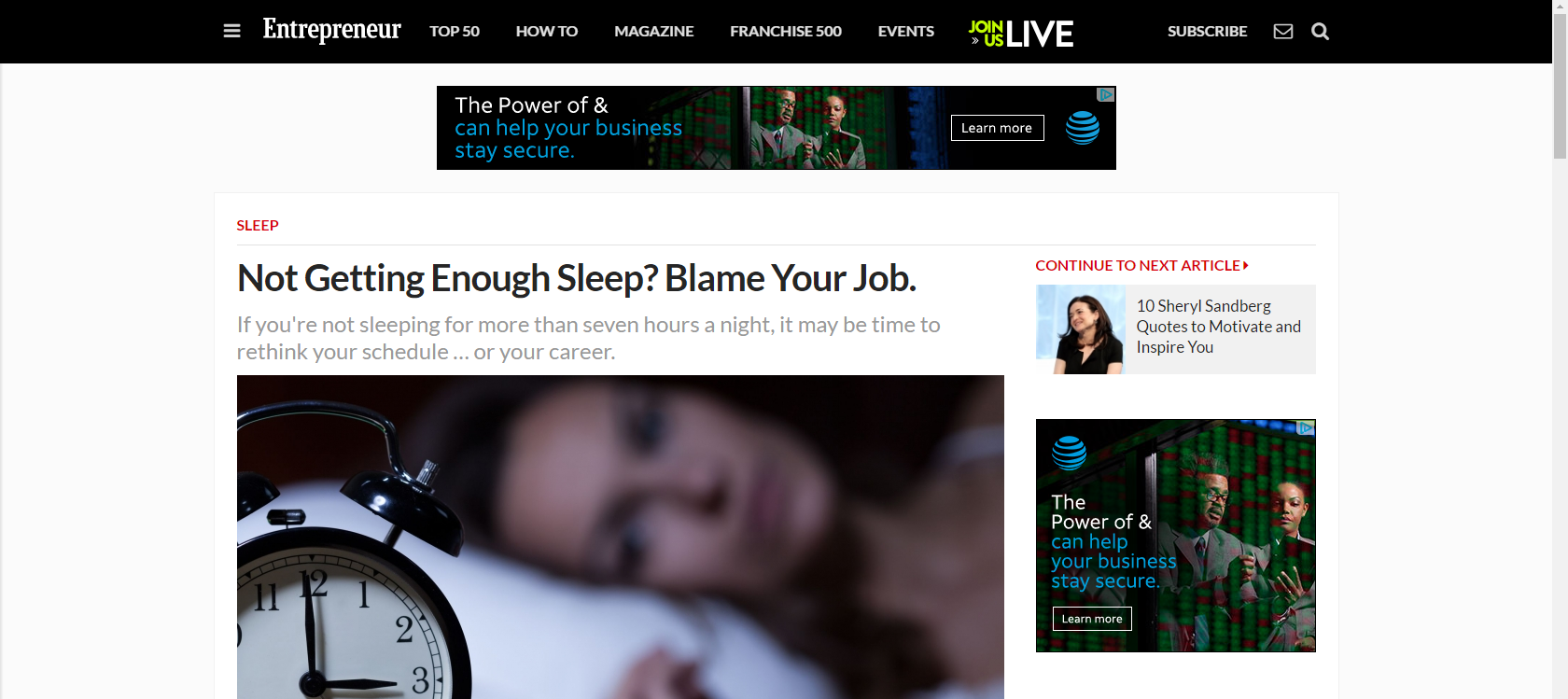
Is Your Job To Blame For The Lack Of Sleep You’re Getting?
Are you getting enough sleep? If you’re not getting at least seven hours or more every day, the answer is likely “no,” according to the American Academy of Sleep Medicine and the Sleep Research Society.
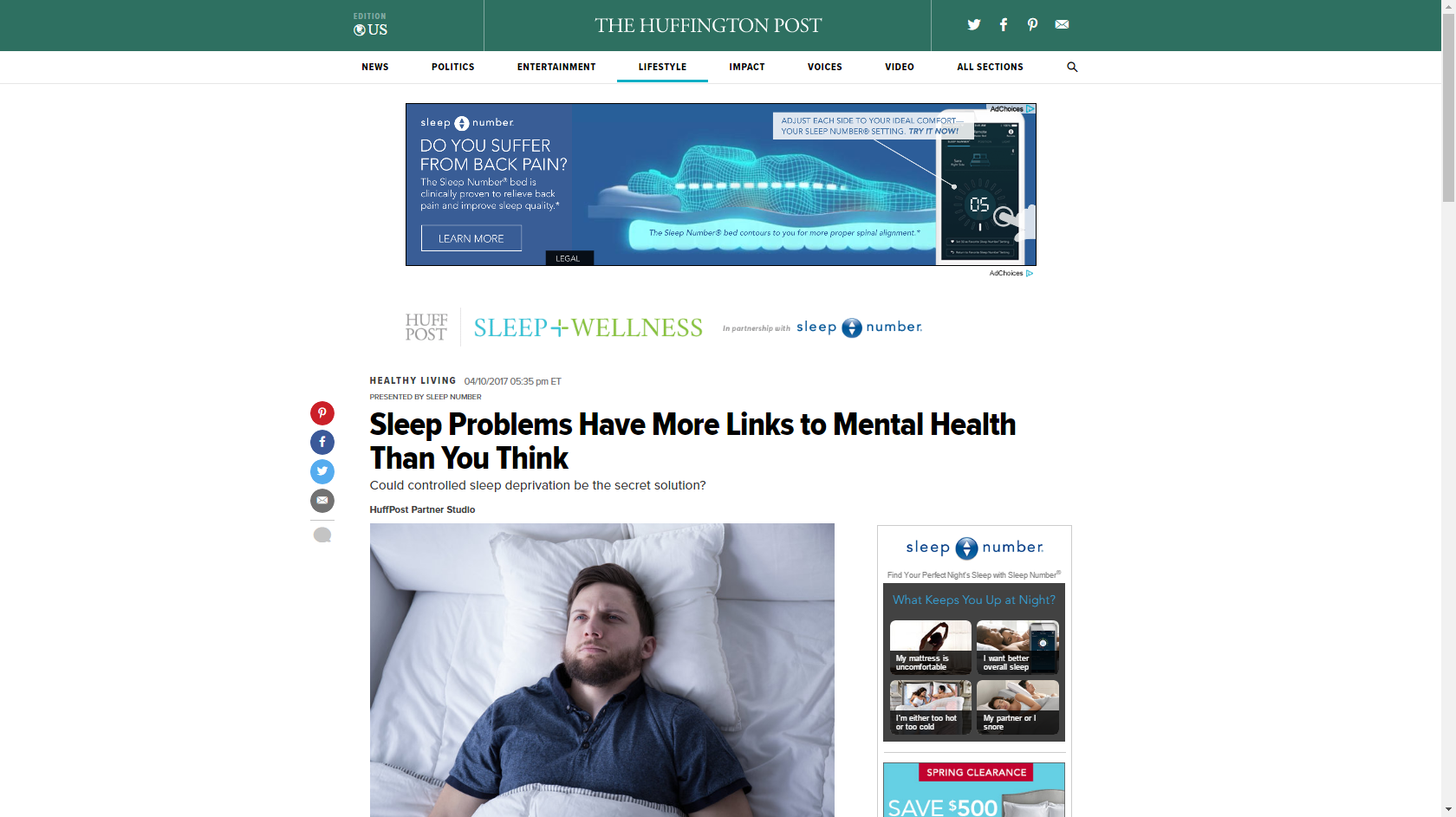
Sleep Problems: A cause of mental illness, or a symptom?
Do Sleep Problems Cause Mental Illness? Or Are They A Symptom Of It?
Americans are quite sleep deprived these days, but what you might not know is all of that not sleeping could be affecting your mental well-being. Or, is it that your mental health is leading to sleepless nights and yawn-filled days? The data paints a picture: Nearly one in five Americans suffers from some kind of mental illness, according to data from the National Institute of Mental Health. Even more surprising, a whopping 50 to 80 percent of people living with typical psychiatric illnesses also report chronic sleep problems, compared to less than 20 percent of the general population.

